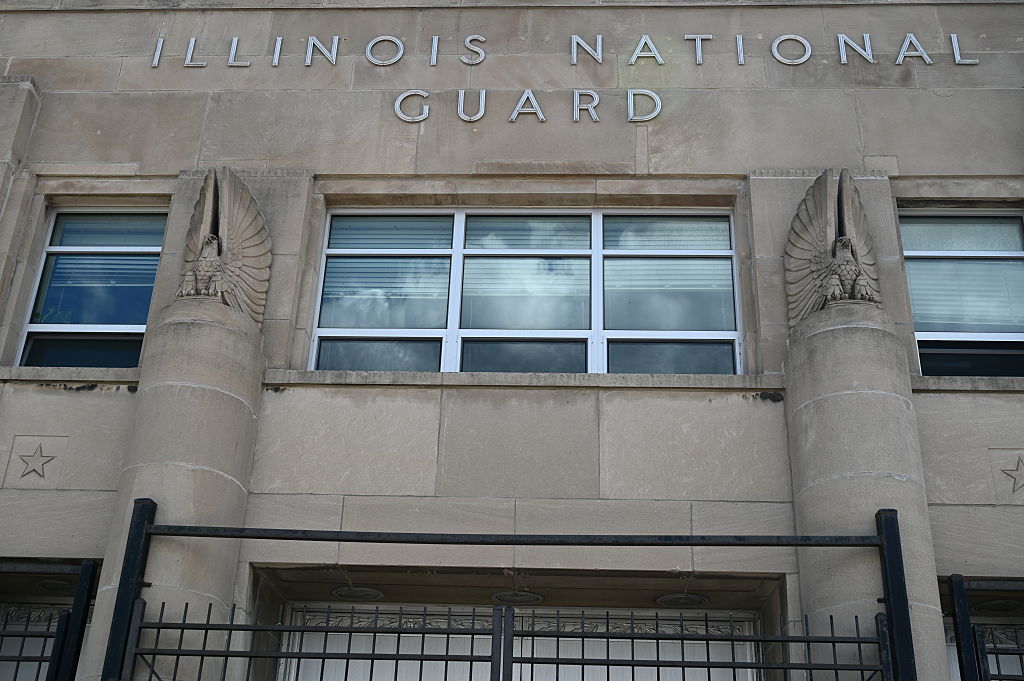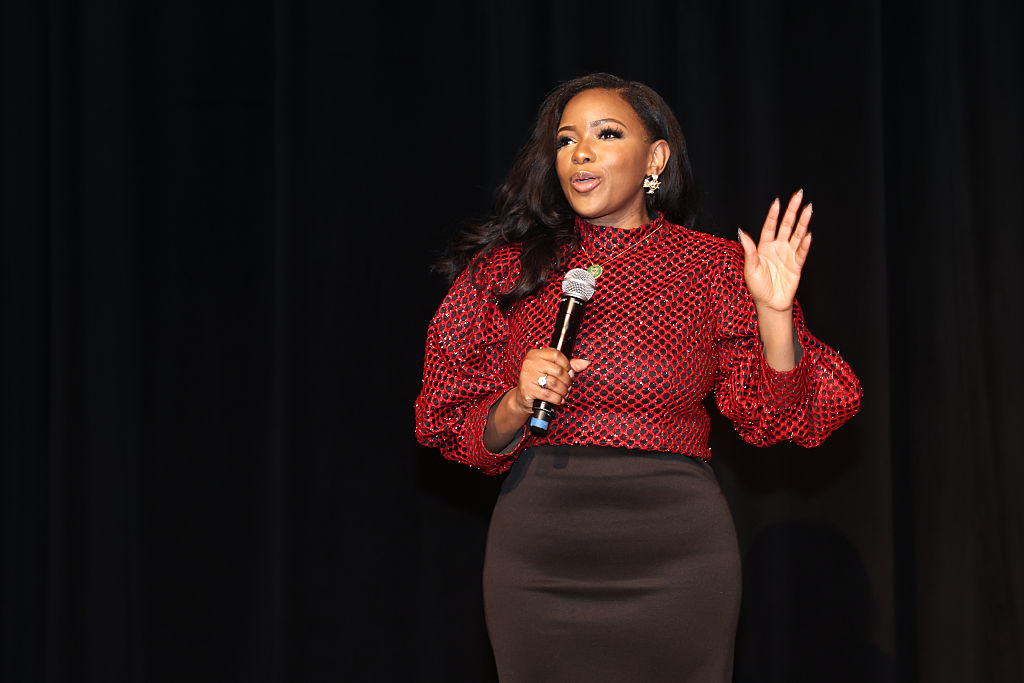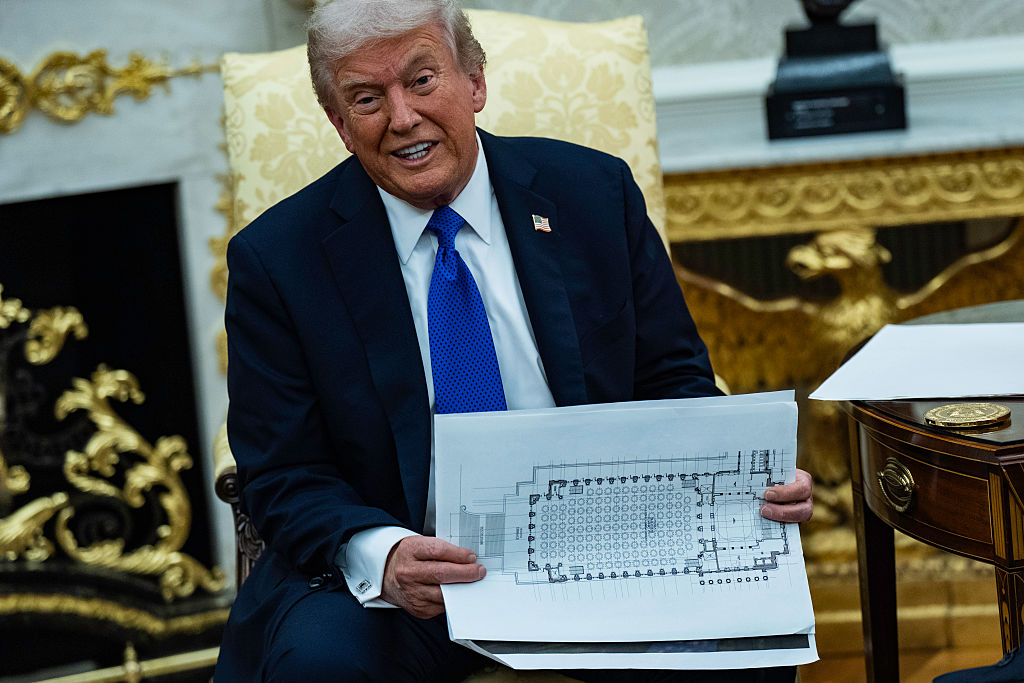[Op-Ed] Chicago Vs. Trump: Is This A Preamble to Civil War?

President Trump has declared his intention to deploy federal forces, including the National Guard, to Chicago, calling the city a “hellhole” and insisting, “We’re going in,” though offering no timeline or specific authorization request from Illinois officials. The timing, scope, and legality of such a move remain murky.
Illinois Governor J.B. Pritzker has not requested deployment, and state Guard officials have already signaled their opposition. But the announcement sets the stage for a clash between Washington and one of America’s largest cities.
Mayor Brandon Johnson certainly isn’t blinking.
Even before Trump’s latest threat, Johnson had signed an executive order called Protecting Chicago. This is a sweeping declaration that the city will not cooperate with federal overreach. His order directs the law department to use “any and every legal mechanism” to challenge unauthorized federal action, and it instructs Chicago police officers to remain in clear, official uniforms and not wear masks so residents can distinguish them from camouflaged federal agents. In other words, Chicago’s mayor is preparing his city not just for potential occupation, but for confusion, infiltration, and impersonation.
He didn’t say the words outright, but his warning feels like the preamble to a civil war. That’s my read on it.
The language Johnson used was sharper than nearly any big-city mayor has dared. He warned of federal troops, unmarked vans, and armed vehicles in Chicago’s streets. “Our people did not call for this. This is an erratic, impulsive administration…We take these threats seriously,” he said. His words were less a plea than a battle cry, signaling that he views the White House as a hostile force.
On social media, Johnson’s defiance has rippled outward. Progressives and civil rights groups flooded Twitter, TikTok, and Instagram with clips of his speech, hailing him as a bulwark against authoritarianism. Others criticized him as reckless, accusing him of undermining public safety. The debate itself underscores the stakes. What might have been dismissed as partisan bluster now feels like a constitutional showdown.
Because what Johnson described is not abstract. We’ve seen it before. Federal soldiers with bayonets at the schoolhouse doors in Little Rock, Ark., 1957. The Ohio National Guard opening fire on students at Kent State in 1970. Masked agents dragging protesters into unmarked vans in Portland in 2020. Each revealed how easily “restoring order” becomes state violence. Johnson’s order is an attempt to stop Chicago from being the next site of that trauma.
That’s why this moment is more than political theater. It’s a test of sovereignty. Who commands Chicago’s streets? Is it the president, or the city itself? Who decides when federal agents can storm a city? Who decides whether CPD officers can be drafted into ICE duty? Who decides when Chicago streets become staging grounds for political terror?
These are constitutional questions as much as political ones. And Johnson has planted his flag firmly on the side of resistance. Johnson’s executive order makes his position plain: the Chicago Police Department will not be deputized into ICE duty, traffic checkpoints, or federal patrols. This is a city asserting its right to protect residents from Washington’s overreach.

And Johnson was deliberate in centering ordinary people, not criminals or gang members, in his warnings. He spoke of grandmothers shoved into vans, of unhoused residents harassed, of families ripped apart. Authoritarianism always lands first and hardest on the vulnerable. Brown and Black communities. Immigrants. The poor. The people who already live under heavy surveillance and policing. Johnson made clear that this is who he is trying to shield.
“Protecting Chicago is the most sweeping campaign of any city in the country to protect ourselves from the threats and actions of this out-of-control administration,” Johnson said.
The genius of authoritarianism is that it doesn’t always look like dictatorship at first glance. It looks like “restoring order,” like “fighting crime,” like “protecting the border,” like “law and order.” But when soldiers show up in neighborhoods that never asked for them, when police are deputized to do federal checkpoints, when immigrants and protestors alike are disappeared into unmarked vans, that’s a siege.
Johnson’s warning lands with that weight: the possibility that one man’s political theater will turn American streets into battlefields. When a local leader openly defies the president’s orders, we are no longer talking about partisan disagreement. We’re talking about dueling sovereignties. About whether the president commands the streets of Chicago, or whether the city itself does. That tension is as close to a civil war as America has been in generations.
That’s local sovereignty. That’s nullification in the opposite direction as cities assert their right to protect residents from Washington, rather than using “states’ rights” as a shield for white supremacy. For decades, conservatives screamed about government overreach, but they meant federal interference in business, guns, or segregation. Now, a progressive mayor has flipped the script by invoking local control to resist authoritarianism.
Will Chicago become a model of resistance? Will other cities follow? Los Angeles, New York, Atlanta, Philadelphia? Will their mayors stand up and say their police won’t be deputized, their streets won’t host federal checkpoints, their residents won’t be disappeared by DHS? Or will they capitulate, like too many Democratic leaders did during past crackdowns, hoping to avoid Trump’s wrath?
Chicago is offering a model: align with your governor, your county leadership, your congressional delegation. Draw a bright line. Declare that your city belongs to its residents, not to an impulsive man in Washington playing toy soldiers with real lives. If Chicago holds firm, it could embolden other cities to resist. If it folds, it risks isolation. In that sense, Johnson isn’t just protecting Chicago; he’s testing whether urban America is ready to defend itself.
Part of why Johnson’s statement hit so hard is because it wasn’t dry legalese. It was emotional, defiant, and clear. Over and over, he repeated the same word: PROTECT. “We will PROTECT our Constitution, we will PROTECT our city, and we will PROTECT our people.” That repetition was deliberate, a counter to Trump’s “law and order” mantra.
This was not just an executive order. It was a rallying cry. It was Johnson standing up not only as mayor but as a voice for civic dignity, insisting that Chicagoans are not pawns in a federal game.
Chicago’s stance matters. This isn’t just about one city’s legal maneuvers. It’s about whether America is prepared to resist authoritarian creep, or whether it will surrender in silence. Chicago has drawn its line. Now we wait to see whether other cities will do the same. Because if we don’t resist tanks in the streets, checkpoints at intersections, and vans in the night, then we’ve already lost the war before a single shot is fired.
Dr. Stacey Patton is an award-winning journalist and author of “Spare The Kids: Why Whupping Children Won’t Save Black America” and the forthcoming “Strung Up: The Lynching of Black Children In Jim Crow America.” Read her Substack here.
SEE ALSO:
How Donald Trump Is Reframing What Counts As Criminal
Harriet Jacobs, Rep. Nicole Collier, And Black Women Who Don’t Bow








